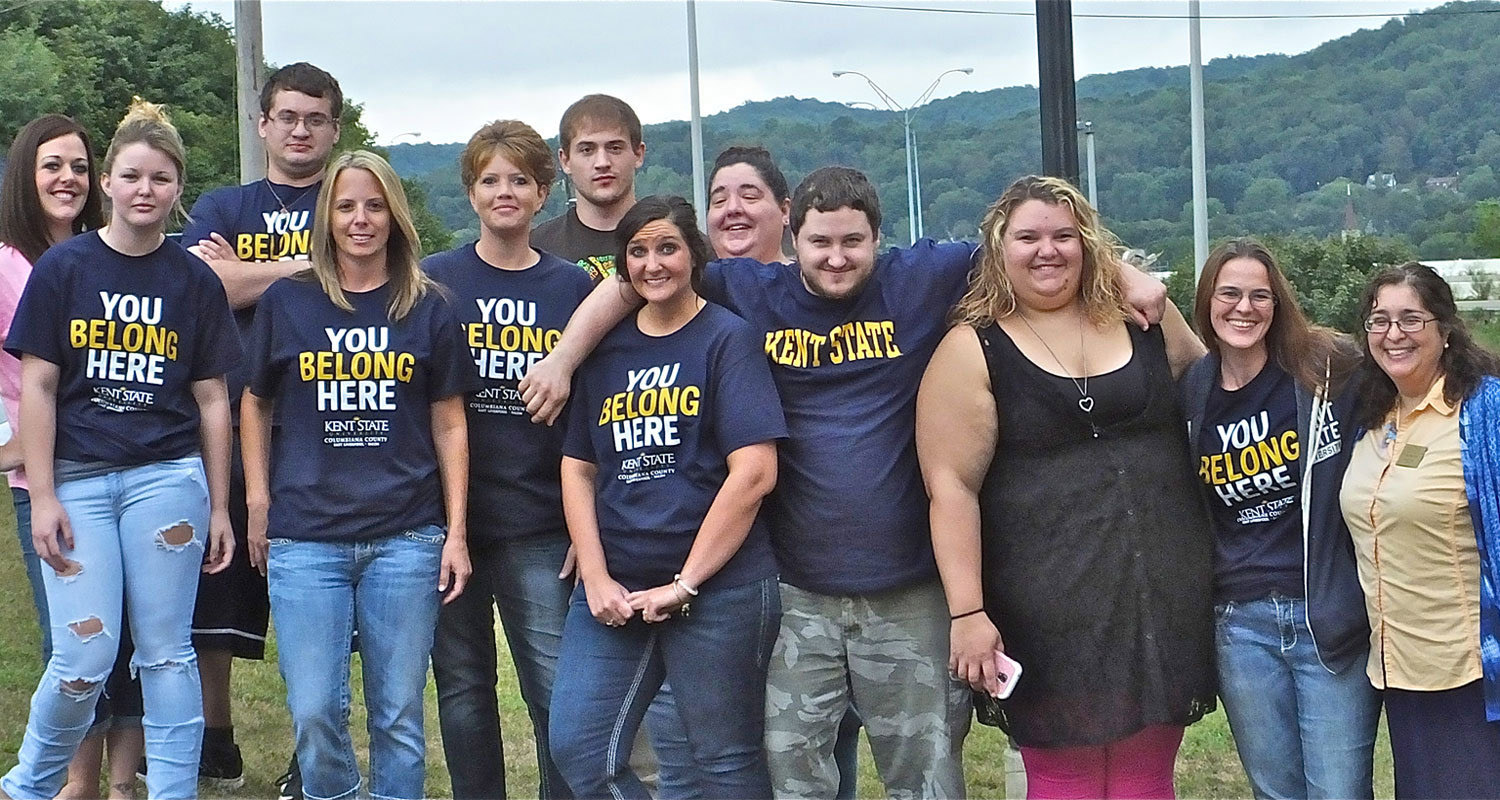Kent State East Liverpool Sociology Class Researching Food Systems
Students in Lydia Rose’s Researching Society class at Kent State University at East Liverpool are using more than textbooks and notes for their lessons this semester. They also are using research techniques to study food systems and the impact of food on the overall health and well-being of a society’s members.
The students involved with this project are earning their experiential credit this term. Rose is an assistant professor of sociology and director of research in the Social Science Research Lab at Kent State East Liverpool.
At the beginning of the fall semester, Rose’s students participated in the two-day Welcome Back event on campus by offering fresh fruits and vegetables as a food option. During this annual event, students are typically offered free food, drinks and snacks to help kick off the new academic year. Usually, the food includes pizza, cake, soft drinks, cookies, chips, water and such.
“Offering a healthy option at the Welcome Back celebration was a way to get the class thinking about food availability and ‘food systems,’ and the structures we face when trying to be health-conscious,” Rose explains. “The importance of our food system is connected to important life-threatening health conditions such as diabetes, malnutrition, overnutrition, obesity and many other diseases and health conditions.”
Rose is a public sociologist who researches and studies social movements, social organization and social mobilization to combat social inequality and poverty. Her research includes studying food systems, food insecurity and food deserts.
A food system, as described by Rose, refers to the set of social structures involved in all aspects of our food, including where and how food is produced; how it is distributed; the choices available to people; and the choices that people seek out (food consumption).
“The social movement for organic healthy foods involved people making the choice to demand that our food not have dangerous pesticides, chemicals, preservatives and/or is subjected to high levels of processing,” she notes. “Organic foods, cage-free chickens and grass-fed beef have become viable options available to many more people because of the social movement regarding the food system in the United States.”
Rose says that many of the students in her class were surprised to find that the healthy food options they offered during Welcome Back days were “enjoyed and consumed” by so many participants. The students plan to submit their research to the Undergraduate Research Conference at Kent State University at Salem in December.
Student Kristin Mercer was among those who were surprised by the initial research results.
“I found the number of people who chose healthy options, instead of the pizza, very surprising,” Mercer says. “There were a lot more than I expected. I also found the number of women who thanked us for providing them with healthy food to be surprising, as well. There were at least 10 women during the two days that did so. All said that they were dieting and really appreciated our thoughtfulness.”
Students Leah Houstman, Heather Allen, Lisa Johnson and Chelsea Cope are working together on a research project and wrote that they “believe East Liverpool is an area with food insecurity issues and that studying food systems is an appropriate topic.”
Rose is currently working with Carol Cowan, commissioner of the East Liverpool Health Department, to address issues related to food systems on a local level. A newly formed food council is working to help produce, provide and promote healthier foods and eating habits for the East Liverpool area. A community garden taskforce also is working to promote gardening.
Kent State students will be able to help with this initiative during the next semester as part of the Alternative Spring Break program, which provides opportunities for community service, at Kent State East Liverpool. Students will help build a community garden and demonstrate the benefits of gardening as a connection to better food systems.



